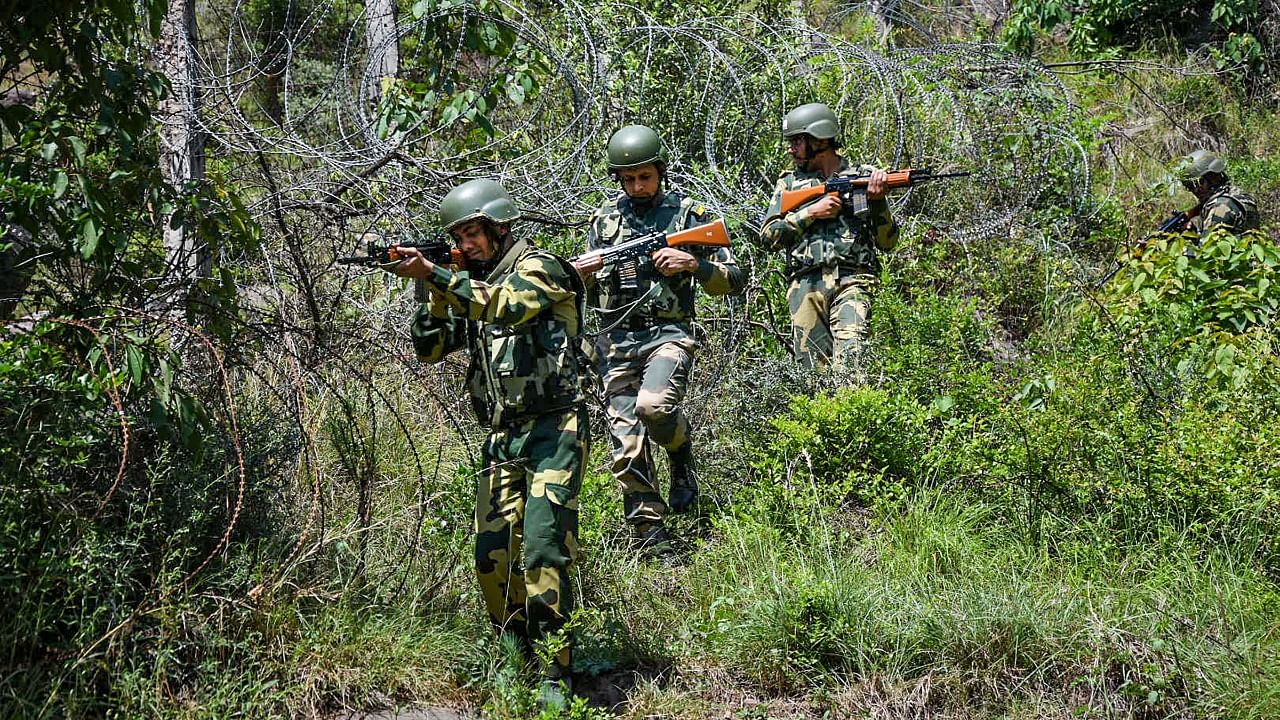
On Friday afternoon, the summer sun shone against a bright blue sky in Srinagar. Almost all the shops in the city were open, with the streets teeming with shoppers. Three young men sitting on a metal settee in a well-manicured park watched a video showing exultant Taliban fighters celebrating their triumph.
"After a good 20 years, they finally drove the foreign forces out and took Afghanistan back from the collaborators," one of the three said. A few hundred meters away, inside a newly constructed café on MA Road, young men in faded jeans and tees engaged themselves in a discussion over Afghanistan. "Now they (Taliban) won't be harsh towards women, and they will allow them to have access to modern education," they averred.
Since the lightning advance of Taliban fighters following the US troop pullout, people in the Kashmir Valley have keenly tracked the situation in Afghanistan. From cafés to hair salons to social media platforms, Afghanistan and the Taliban dominate discussions in the Valley.
Last month, Taliban spokesperson Suhail Shaheen's statement that the Taliban had the right to raise its voice for Muslims worldwide, including in Kashmir, has only provided more grist to such discussions. Themselves caught in the throes of a protracted conflict, Kashmiris largely praise the grit and determination of the Taliban fighters. "They did not cave in, remained unyielding in the face of the world's most powerful army," Zeeshan Bhat, as he sips his cappuccino, says.
In 1988, when the Soviet soldiers began withdrawing from Afghanistan, the people also celebrated the victory of the Mujahideen across Kashmir.
Noted Kashmiri writer and poet, 78-year-old Zareef Ahmad says that people in alleyways, mosques and market stalls would talk and praise the Mujahideen. "Some small newspapers carried articles applauding the Mujahideens for defeating the Soviet troops", Zareef says.
Why do Kashmiris discuss the Taliban?
Kashmir has found itself caught in the throes of a long-drawn-out conflict since 1989. Thousands have lost their lives so far, and the number of militants fighting the security forces has waxed and waned over the past 30 years.
Besides local militants, a scant percentage of foreign nationals from Pakistan and Afghanistan also sneaked into the Valley to fight the Indian military. In June, Jammu and Kashmir police chief Dilbagh Singh apprised reporters in Srinagar that many foreign militants were present in the region.
Ever since the Taliban fighters captured Kabul, there has been a general feeling among a large section of people in the Valley that the Taliban would make their way into the Valley to help local militant groups, a key reason why Kashmiris are discussing the Taliban.
Another reason might be the religious sentiment. Some pro-freedom Kashmiri leaders had welcomed foreign militants from Pakistan and Afghanistan to Kashmir in the past. Prominent separatist leader, founder of People's Conference, Abdul Ghani Lone, would describe foreign insurgents mehmaan or guest, mujahideen. Later, however, he changed his position on this, and in an interview, said that foreign militants should leave Kashmir as they had their own agenda.
The Taliban victory has galvanised some in the Valley, but security experts believe the development could also animate local militants. Last month, former top cop Shesh Paul said that the outcome would embolden militants in Kashmir.
However, a significant increase in the infiltration is unlikely since the Line of Control (LoC) has changed much since the 1990s when militants would cross it easily. After India and Pakistan inked a ceasefire agreement in 2003, India fenced the 450-mile long LoC within a year, significantly reducing infiltration. New surveillance gadgets also help the Indian security grid in tracking down intruders.
However, the situation next summer would help us better assess the impact of the developments in Afghanistan on Kashmir infiltration as snow is about to clog the mountain passes this year. Until then, the Valley's streets will continue to be filled with debates and gossip about the Taliban and Afghanistan.
(The writer is a journalist based in Srinagar)
Disclaimer: The views expressed above are the authors' own. They do not necessarily reflect the views of DH.